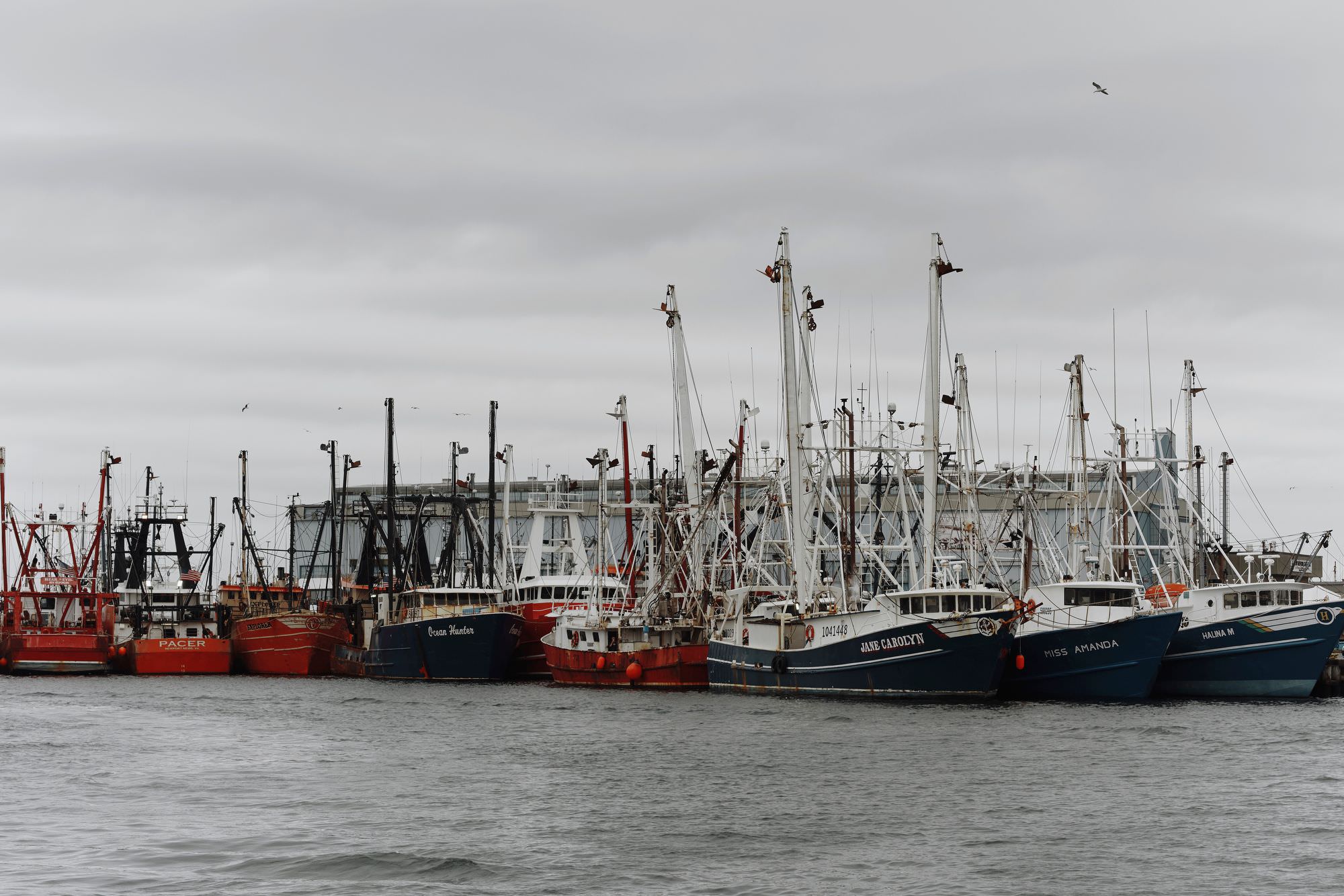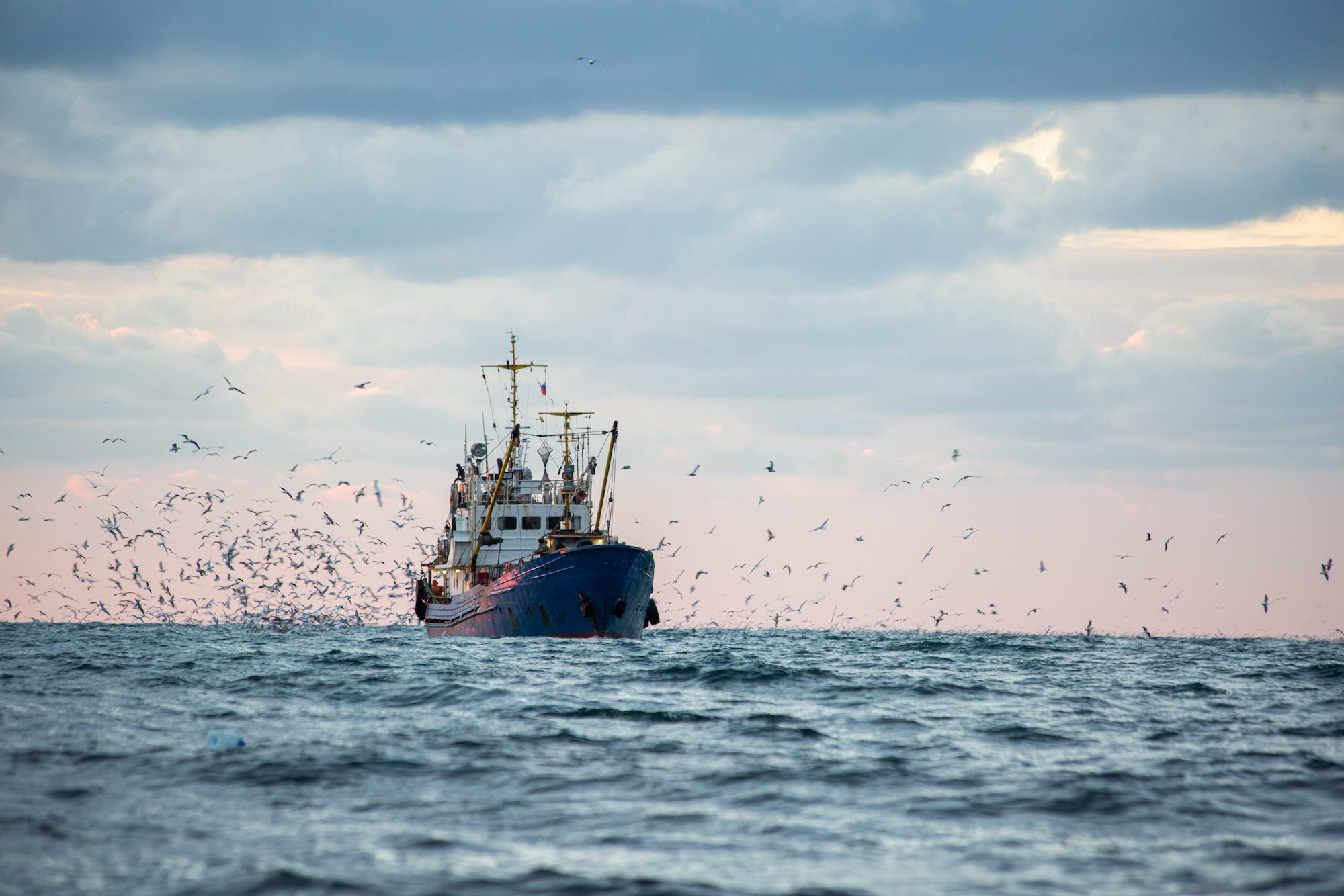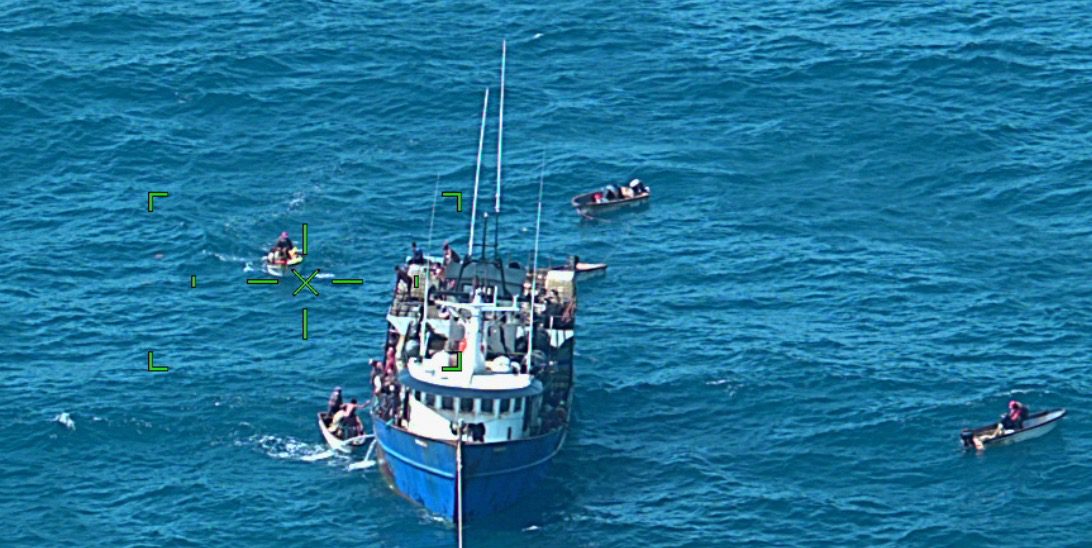by Will Sennott (The New Bedford Light, ProPublica) The U.S. Department of Justice has begun looking at possible antitrust issues in the New England fishing industry, amid growing concern about consolidation and market dominance by private equity investors.
Representatives of two fishing industry groups said that two DOJ lawyers interviewed them in September. “We focused on how this level of consolidation is a regulatory failure,” said Mark DeCristoforo, executive director of the Massachusetts Seafood Collaborative, who was interviewed. His organization represents a diverse coalition of fishermen and related businesses, all of whom he said have been impacted by regulations that favor only the largest companies.
Brendan Ballou and Richard Mosier, special counsels for the DOJ’s Antitrust Division, spoke on a conference call with DeCristoforo and a representative of the Northwest Atlantic Marine Alliance, who asked not to be named. Apart from its law enforcement actions, the Antitrust Division often initiates policy discussions with experts and insiders to learn more about the competitive dynamics in a particular industry.
Following the interview, Ballou emailed DeCristoforo to request a copy of a controversial proposal that independent fishermen feared would enable private equity-backed companies to dominate the lucrative scallop market.
“We are looking forward to digging further into this general issue to understand the competition concerns and possible ways to address it,” Ballou emailed DeCristoforo.
In an earlier email, Ballou said he was inquiring based on an investigation published on July 6 by ProPublica and The New Bedford Light. The investigation found that labor conditions have deteriorated as an overhaul of federal regulations, adopted in 2010, has allowed private equity firms and foreign investors to dominate parts of the New England fishing industry.
One such firm is Blue Harvest Fisheries, which operates out of New Bedford, Massachusetts, and is the largest holder of permits to catch groundfish such as pollock, haddock and ocean perch. The investigation traced the company’s ownership to a billionaire Dutch family via a private equity firm. Over the past seven years, records show, the company has purchased the rights to catch 12% of groundfish in the region, approaching the antitrust cap of 15.5%. It further boosts its market share by leasing fishing rights from other permit owners. There are no antitrust restrictions on leasing and very little transparency; the identities of specific lessors and lessees go unreported.
A spokesperson for Blue Harvest Fisheries said that the DOJ had not contacted the company. He said the company would welcome any inquiries. Ballou and a DOJ spokesperson declined to comment for this article. Mosier could not be reached for comment.
Blue Harvest has said in past statements that it is “dedicated to acting as a responsible steward of the vitally important domestic U.S. fishing industry and actively supports regulation for the benefit of the industry at large and the communities in which we serve.” The Coast Guard approved its “ownership and capital structure,” it said.
New Bedford, a small city on the southern coast of Massachusetts, is the heart of New England’s fishing industry and the top-earning commercial fishing port in the nation. Despite this growth, the number of employers in New Bedford’s fishing industry has dropped by more than 30% in the last decade, according to Bureau of Labor Statistics data. Those still employed are working longer hours. In a federal survey published last year, 45% of fishermen reported working 18 hours or more per day, up from 32% in 2012.
After the investigation was published, three U.S. senators condemned what they described as lax government antitrust policies. Sen. Richard Blumenthal, D-Conn., urged a review by the DOJ.
“This alarming investigation raises serious concern about possible violations of federal law,” Blumenthal said in a July statement. “A powerful foreign private equity giant has gained huge power over a vital American industry.”
The National Oceanic and Atmospheric Administration, which is part of the Commerce Department, regulates the fishing industry. In September, the regional council that advises NOAA on fisheries regulation in New England shot down, by a 15-1 vote, the proposal that Ballou had requested a copy of earlier that month. Backed by Blue Harvest and other large companies, but opposed by many independent fishermen, the proposal would have lifted a prohibition on leasing of the rights to catch scallops.
“This is being driven by the largest companies on the East Coast,” said New Bedford Mayor Jon Mitchell, addressing the regional council before the vote. “This will lead to consolidation because it is intended to lead to consolidation.” He added, “Small businesses will go out of business and the port economy will suffer.”
“Private equity already has a grip on the industry,” council member Eric Hansen said after the vote. The proposal “would have given the largest companies more power to consolidate,” he said.
Congress is concerned as well. A recent bill passed by the Natural Resources Committee of the U.S. House of Representatives, as part of an effort to reauthorize the Magnuson-Stevens Act, the primary regulatory framework for the fishing industry, would create more transparency in the opaque permit ownership and leasing markets. The Inflation Reduction Act, passed in August, also allocated $20 million to NOAA to “improve agency transparency, accountability, and public engagement.”
The DOJ has probed antitrust issues in the fishing industry before. An investigation by the department led to the 2020 sentencing of Chris Lischewski, the former chief executive of Bumble Bee Seafoods, to 40 months in prison for conspiring to fix prices of canned tuna. Lischewski was also a Blue Harvest director and investor. Lischewski resigned from the board during the investigation and his ownership stake was transferred to his wife, a Blue Harvest spokesperson said this week.
Ballou first contacted DeCristoforo on Sept. 8. “I read the recent ProPublica piece on consolidation in the New England fishing industry, and your organization’s recent statement on proposed changes to scallop fishing boat leasing regulations,” Ballou wrote. “We were wondering if you might be willing to talk about the general issues the industry faces, and potential policy solutions.”
On Sept. 13, DeCristoforo spoke to Ballou and Mosier over the phone from his office, which is stationed along Boston’s Fish Pier. The interview lasted about 30 minutes.
The DOJ lawyers “seemed to be in education mode,” said the representative of the Northwest Atlantic Marine Alliance, a Massachusetts-based group that advocates for independent fishermen, who was also interviewed.
DeCristoforo said he was eager to air his organization’s grievances with a regulatory system that he said unjustly favors the largest companies. But he was also skeptical of the DOJ’s ability to address what he described as structural issues allowing private equity to take over the industry.
“This is not the fault of one Wild West company. This is a systemic issue,” he said this week. “What we need is true reform to the regulatory scheme that has forced this consolidation in the first place.”
“Our industry has been decimated,” he said. “We want it to remain an industry that a young person can enter and be able to prosper and thrive.”
ProPublica is a Pulitzer Prize-winning investigative newsroom. Sign up for The Big Story newsletter to receive stories like this one in your inbox.

 Join The Club
Join The Club











